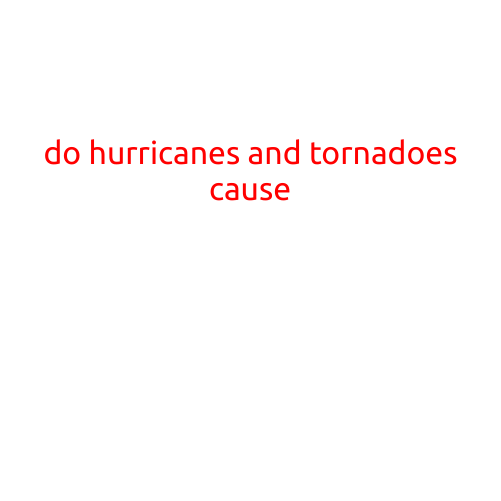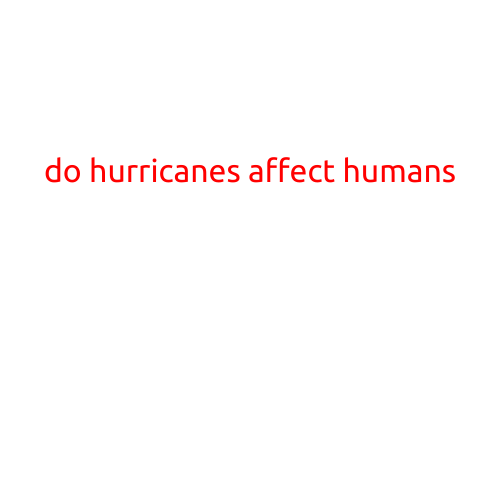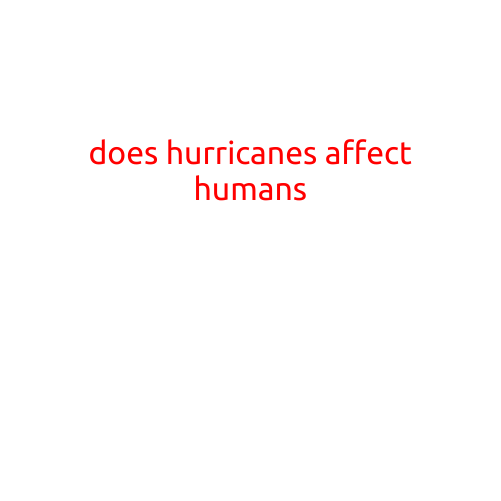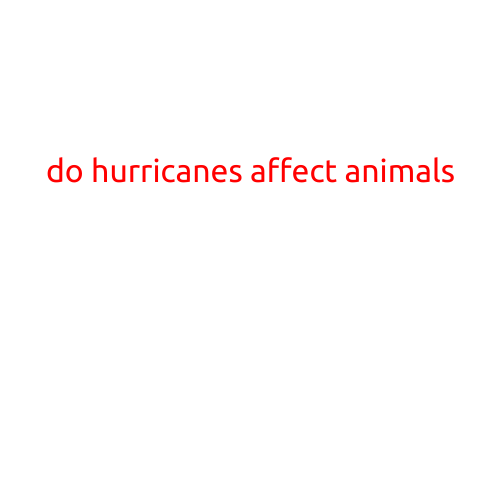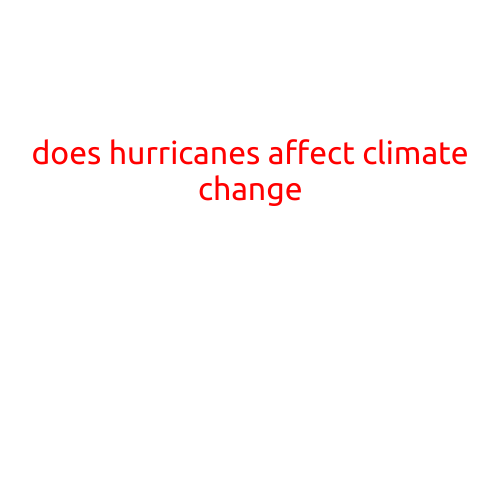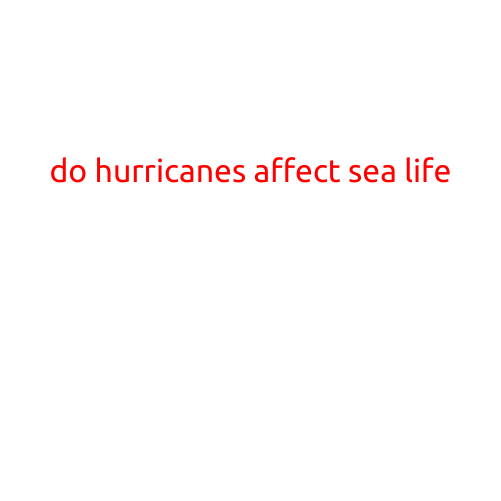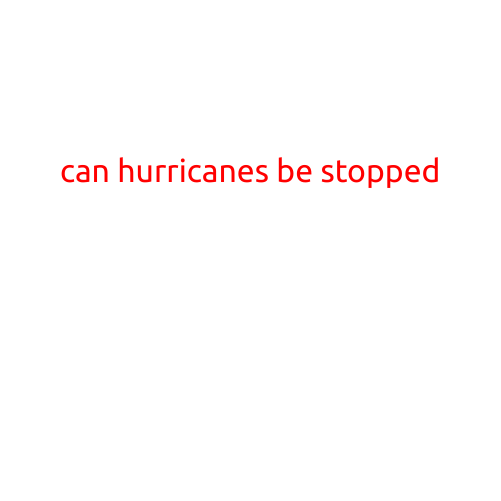
Can Hurricanes be Stopped? A Look into the Science and Possibilities
Hurricanes, also known as tropical cyclones or typhoons, have been a cause of destruction and devastation for centuries. These powerful storms have threatened coastal communities, causing widespread damage and loss of life. As the global climate continues to change, the frequency and intensity of hurricanes are expected to increase, making it imperative to explore ways to mitigate their impact. But can hurricanes be stopped? In this article, we’ll delve into the science behind hurricane formation, the current state of hurricane mitigation efforts, and the possibilities of stopping these powerful storms.
Understanding Hurricane Formation
Hurricanes form when a combination of atmospheric and oceanic conditions come together to create a perfect storm. Warm ocean waters, low atmospheric pressure, and high levels of moisture are the key ingredients that fuel the development of a hurricane. As the storm system spins, it begins to draw in more water vapor and heat from the ocean, causing it to grow in size and intensity.
Current Hurricane Mitigation Efforts
To mitigate the impact of hurricanes, researchers and policymakers have been working on various strategies, including:
- Forecasting and Warning Systems: Accurate forecasting and timely warning systems help people prepare for the storm, evacuate, and take necessary precautions to minimize damage.
- Storm Surge Barriers: Elevated structures, such as sea walls and barriers, can help protect coastal communities from storm surges and flooding.
- Hurricane-Resistant Construction: Building codes and architectural designs that can withstand the forces of hurricanes are essential for reducing damage and loss of life.
- Land Use Planning: Ensuring that development is done in a responsible and sustainable manner, taking into account hurricane hazards and vulnerability, can help reduce the risk of damage and loss.
- Climate Change Research and Adaptation: Understanding the impact of climate change on hurricane frequency and intensity, as well as adapting to these changes through climate-resilient infrastructure and planning, are critical for mitigating the effects of hurricanes.
Can Hurricanes be Stopped?
While these mitigation efforts are essential for reducing the impact of hurricanes, stopping them entirely is a complex and challenging task. Currently, there is no viable technology or method to completely stop a hurricane. However, researchers are exploring new technologies and strategies to weaken or dissipate the storm.
- Weather Modification: Weather modification techniques, such as cloud seeding and aerosol injection, aim to disrupt the storm’s circulation patterns and reduce its intensity.
- Storm Disruption: Scientists are studying the use of advanced technologies, like sonic waves and electromagnetic pulses, to disrupt the storm’s structure and weaken it.
- Atmospheric Water Harvesting: Researchers are investigating the potential of atmospheric water harvesting to remove moisture from the atmosphere and reduce the storm’s strength.
Conclusions
Stating that hurricanes can be completely stopped is overstating the current capabilities of human technology. However, ongoing research and innovation can help reduce the impact of hurricanes through improved forecasting, storm surge barriers, and hurricane-resistant construction. Additionally, climate change research and adaptation are crucial for preparing communities for the increased frequency and intensity of hurricanes. While stopping hurricanes may not be achievable, there is hope that science and technology can help mitigate their effects and save lives.
